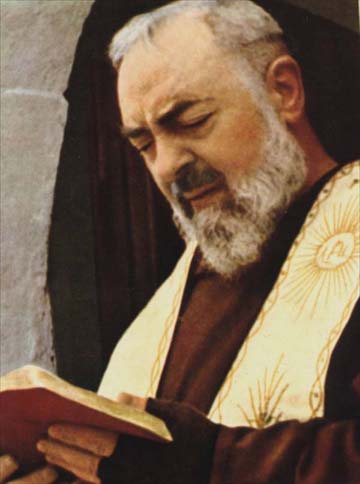Merry Christmas to all! Our Savior has come to us, a tiny infant, weak and helpless, and rests in a small manger in Bethlehem! He will one day grow into a man who will save us all by conquering death. He will give His life for us at Easter, and the Church will rejoice in what is our finest hour. He will die for us to give us life.
But, what of His living for us to give us life? What of those years of fidelity paid to humanity by His daily chores, His mother's and father's teaching, His hours of carpentry work and missionary work? What of this Christ?
I often wondered growing up why I loved Christmas the most out of any Catholic holiday. It was such a joyous time of year, when Santa would come, when the world felt somewhat of a more bearable and happy place, and people were more giving, more caring, more sharing of what little they had. It was a magical time. Now that I am older, my Christmas to-do list has gotten longer, my wintertime bank account has gotten smaller, and my heart has grown much bigger by the time Christmas rolls around. The need for Christ is no longer buried among excited anticipation for gifts from Santa. It is front and foremost in my mind - the gift of His life; the gift of His coming and sharing with us a humble existence like our own.
Far too often we focus on the ultimate passion of Christ - which, by no means, is to be underestimated in its importance and value! But, what about the LIFE of Jesus? Every day, He died a thousand deaths. Crying out in screams for His mother when He was cold, or tired, or hungry, or wet. Our GOD, an infinite being, crying out in the night for the most basic needs of His feeble human existence! He was completely and utterly dependent, as a child, on our care for Him. He was HUMAN. This fact often escapes me so much!! I have no problem imagining Christ's perfection and divinity, yet it is so puzzling to me that his HUMANITY is so ever-present! It astounds me every time, that this God of ours would deign not only to rescue us from sin, but to become ONE of us; so DESPERATE was His desire for love freely given from us!
God LIVED for us, and He did this even before He died for us! In a certain sense, living a thousand deaths each day is somewhat of a more astounding existence than simply dying in one's earthly life. Think about marriage, and how every day a spouse dies to his or her own wishes. It is difficult stuff. A little part of that person's self dies each day, to become a new and better self - the self that God intended that person to be - without ever losing the essence of who he or she is. The French use the phrase "le petit mort" ("the little death") to talk about those moments that stop our heart and even physically hurt and touch us, such as those that come after finishing a breathtaking piece of literature, during orgasm, or while listening to a heart- and soul-stirring symphony. The small part of us inside that dies each time we encounter transcendent beauty and love, the melancholic yearning and reaching out for God, is the "petit mort" that makes life worth living. When we are humbled, when we are shamed and ridiculed - in essence, any time we suffer - we are LIVING in little deaths to self.
This process of dying to self is like a statue being carved by Michelangelo - bit by bit, as he carves into the block of stone, more and more of the statue is revealed - the statue awaiting discovery inside the cold and shapeless form of marble - until David himself is practically living and breathing before you. Michelangelo himself said that, "Every block of stone has a statue inside it and it is the task of the sculptor to discover it." We are all constantly seeking to chip away at our imperfections, dying a thousand deaths to self each day, to discover who our true self is, already created by God. Our God deigned to allow His own Self to be limited to the form of a human being, a human body. As a human being, He prayed and worked and cried and laughed just like us, to discover His Father's Will in all around Him. Truly magnificent, that He lived even as we do, except for sin!
This daily martyrdom, the kind that nobody knows enough to even speak about, is truly the beauty of Christ's coming at Christmas. For He chose to live among us, that the Word might become FLESH. This was Christ's victory over LIFE, even before His victory over death! What does death matter, when Christ has already gained victory over LIFE? The hope of generations, already born of woman by God? He has already died a thousand times to Himself, even at the angel's very announcement of His conception to Mary. "For nothing will be impossible for God." (Luke 1:37). Truly, we hail the Favored One, for the Lord IS with her, and shared with all of us, from the moment of his conception in her womb. His greatness made small, His life made accessible to all of us throughout history. Blessed be those whose eyes and ears and hearts and minds are open to the one who lives a divinely human life, completely unbeknownst to those around Him! This is why Christ taught us to love the poor - He lives with them in their poverty and hiddenness. His gift to us begins with His birth at Christmas, and ends with His death on the cross... but first, He teaches us to truly LIVE. When we truly live, we see our earthly death as another small chip in the marble, revealing our true selves and preparing us for the perfect love that we shall be able to give in Heaven.
Already, we had been saved, for Christ came to do the Will of His Father... the hope of our generations rested on the "yes" of a young woman, whose reliance on the Holy Spirit gave life to Our Lord. At that moment, we knew that humanity had been saved: a star ignited in the sky, Our Little Savior had been born.



